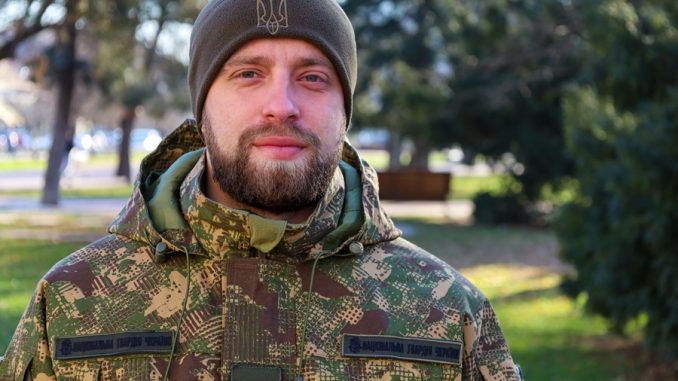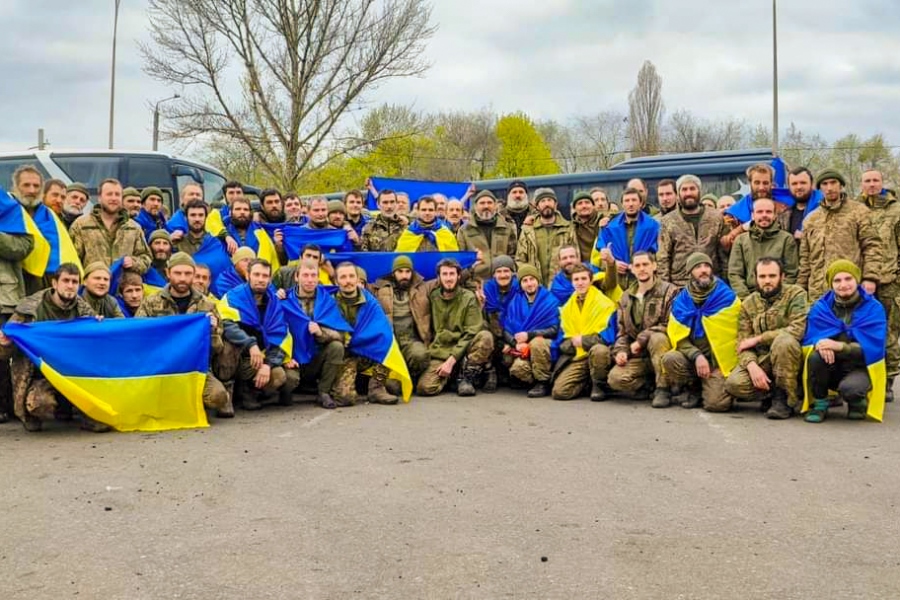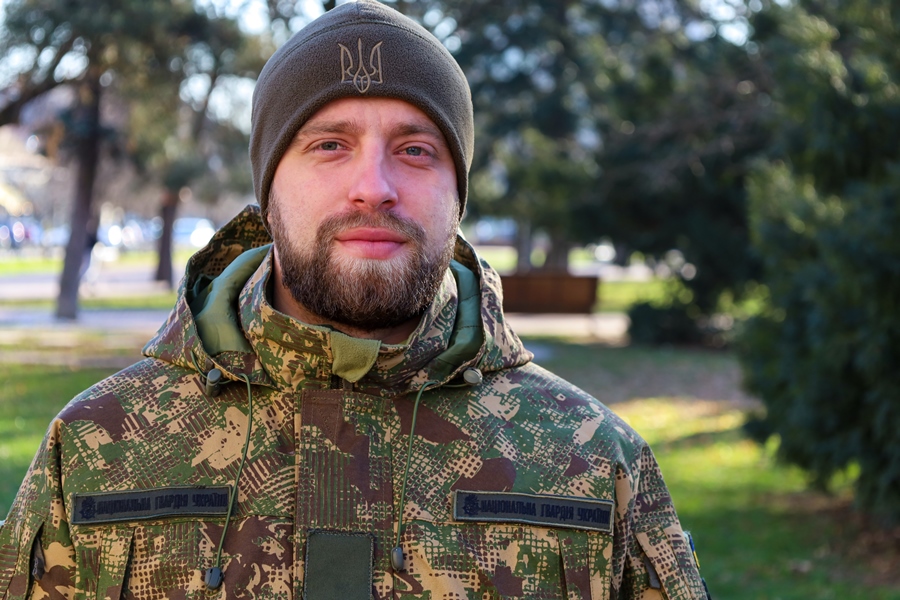
Junior Sergeant Nazar Parfenyuk of the National Guard encountered war on the Ukrainian-Russian border. He fought for over a year on the most challenging frontlines, defended Rubizhne, battled against “Wagnerites,” was wounded, captured, but returned and continues his service.
Enlisted for conscript service in the National Guard of Ukraine in 2018, Nazar decided to sign a contract and dedicate his life to the military and homeland defense. His unit arrived for rotation on one of the sections of the Ukrainian-Russian border two weeks before the full-scale invasion. On February 24, to avoid being surrounded, they broke through to their main forces and took defensive positions in the city of Rubizhne in the Luhansk region.

“In Rubizhne, Severodonetsk, and Lysychansk, fierce battles took place. But we held the city. We had checkpoints at the entrances to Rubizhne, and we held them to prevent Russian columns of armored vehicles and sabotage groups from passing through. We had ambushes: tanks were hidden in bunkers. If a column approached, tanks engaged, and then it was up to us – infantry. We had ammunition, mortars, artillery, MLRS, tanks,” recalls Nazar.

After leaving Rubizhne, the guardsmen moved to Bahmut. Nazar’s unit participated in battles for Selydove. There, Ukrainian fighters repelled continuous assaults by “Wagnerites.” Nazar says that the Russians didn’t consider people; they crawled like zombies. As soon as one “Wagnerite” was killed or injured, another took his place immediately.
“The most memorable was the battle on the outskirts of Selydove. The fights were very brutal. We resisted the PMC Wagner. They attacked in waves. They had a tactic to always have 8 people in a group. Someone from the second group replaced the wounded in the frontline group. That way, they approached very close. They had significant losses, but still kept coming. Sometimes we fought at a distance of 15 meters. I remember the battle that started on the morning of January 13 and lasted until the evening of the next day. Almost two days of close combat. I was wounded, and I ended up in captivity,” says the National Guard.
In captivity, there were constant interrogations, mockery, and beatings. However, all this did not extinguish the hope of returning home and the belief that they would not be left in trouble. The guys suspected an upcoming exchange when the Russians guarding them began compiling lists and verifying data. The exchange took place near Bahmut.
“One day they told us to gather and prepare for a difficult journey. Then we realized that it would either be the road home or we would be taken to one of the Russian prisons. They brought us to the border, where we walked about a kilometer on foot. Somewhere halfway, we met Russian prisoners of war. And then we saw buses and cars with Ukrainian flags. Then there were very bright emotions. No one could hold back. Honestly, all adult men were crying. Then they started calling our parents. They brought us to the hospital, provided all the necessary assistance. In a word, the homeland met us with love and respect,” Nazar recounts.

He refused rehabilitation and decided to leave behind everything that happened in the past and continue his service. Now, Junior Sergeant Parfenyuk serves in one of the units in Transcarpathia and trains recruits. Soon, he plans to become a father for the second time and, after the victory, build a peaceful and prosperous Ukraine.

